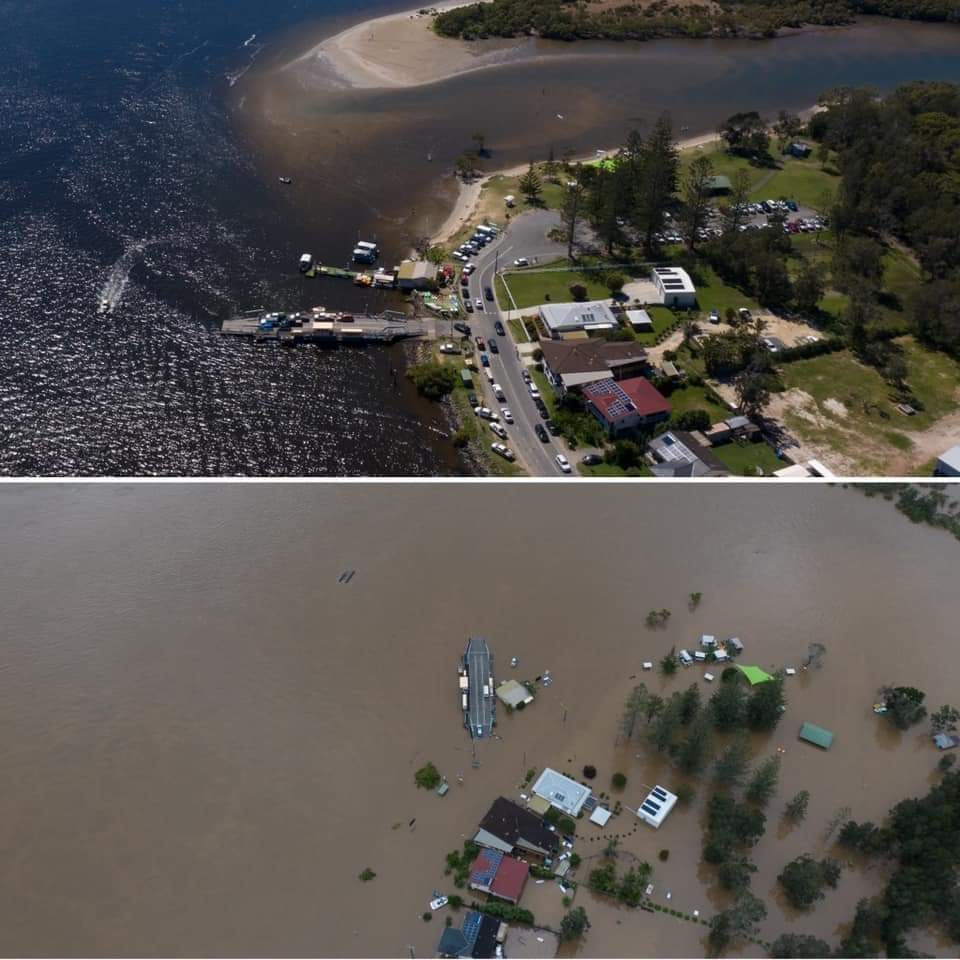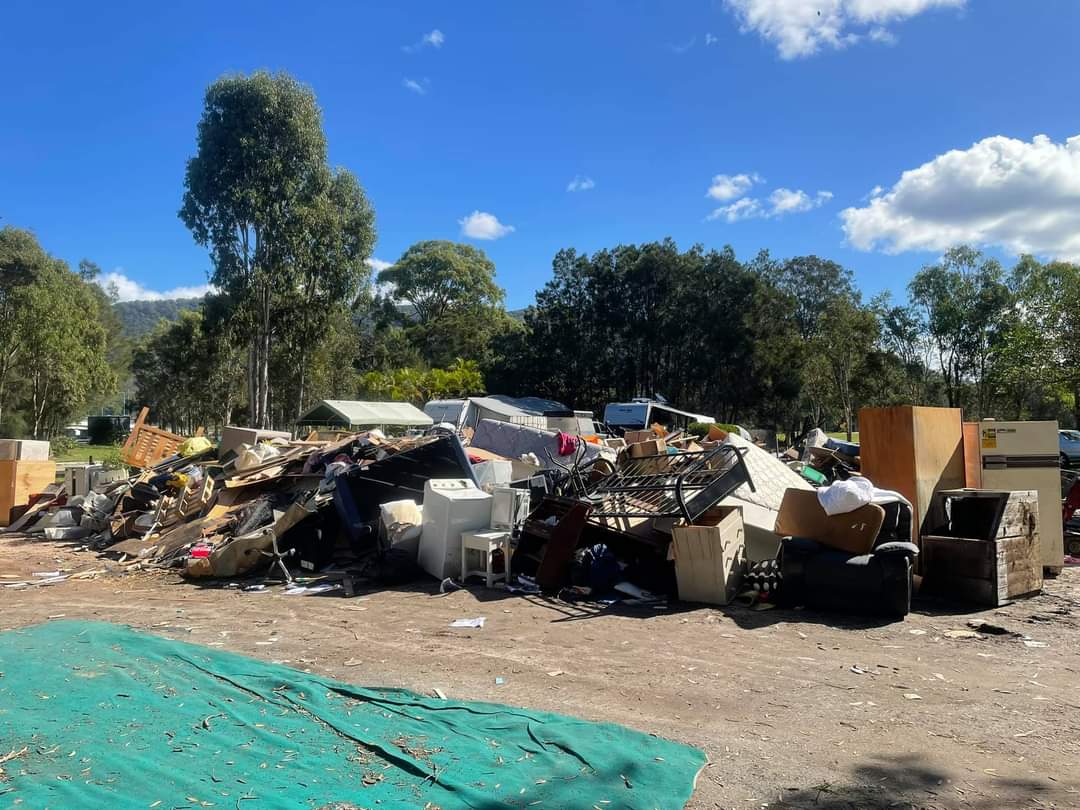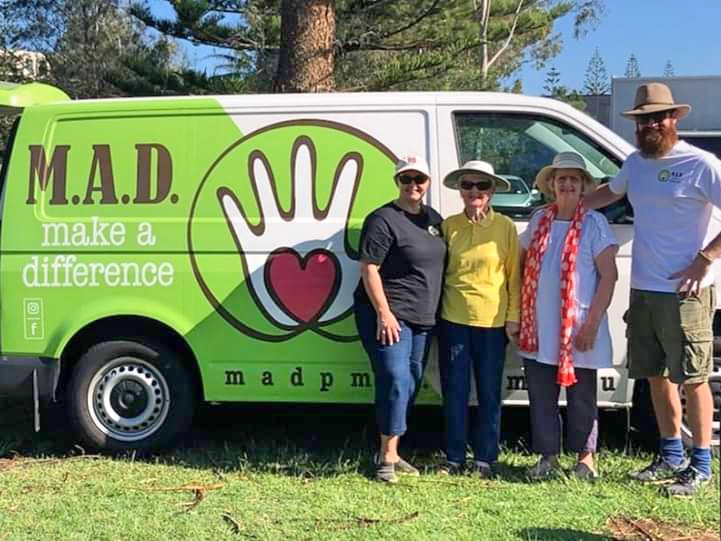Community stories Disaster recovery stories: 17 August 2021
Support needed now more than ever for communities hit by multiple disasters
Port Macquarie, on the mid-north coast of New South Wales, is just one of many towns reeling from the effects of cumulative disasters. In their case, it began in July 2019 with devastating bushfires that affected many communities across the region. The fires burned until January 2020. Homes, livelihoods and, sadly, lives were lost.
Then in March 2020, COVID-19 hit, decimating visitor numbers and the vital income they bring with them, and restrictions hampered bushfire recovery activities. These cumulative impacts meant many retailers, cafes, pubs, restaurants, tourism and accommodation providers were forced to let staff go or, for some, to close.
In March 2021 – with COVID-19 and bushfire recovery still ongoing – the region was inundated by a one in 100 year flood. Thousands of people were evacuated, and five months later, many have still not been able to return to their homes. Today, pockets of the community are still without electricity.

Fewer resources, but more to do
The struggle for small organisations trying to support their community is very real, even in normal times. So, when events like the bushfires, floods and COVID-19 place greater demands on their services, their capacity is challenged. But they fight on!
Make a Difference Port Macquarie (MAD PMQ) is a local support agency helping their community to respond to these events. Over the last year, they’ve had to work through how to do more, with fewer people. When COVID-19 hit, MAD lost their volunteer base almost overnight because most of their volunteers are elderly or retired and are very vulnerable. The pandemic also had a huge impact on the organisation’s fundraising. Like many small community organisations, MAD PMQ relies heavily on events to raise the funds required to deliver their services.
Volunteer Erin Denham said they generally run four or five fundraising events a year but were only able to run one in the last year, and that’s had a massive impact on revenue. MAD PMQ was supported by an FRRR grant that funded the stage for that event and the fit out of their mobile coffee van.
“When we got the FRRR grant, it took so much pressure off us as a charity – we hadn’t been able to run a fundraising event in nine months, and we couldn’t see a way out of COVID-19. The grant allowed us to continue our plan for our projects and support our community.”
As successive disasters have hit the community, MAD PMQ has adapted and expanded its role.
“Our focus has shifted dramatically since our inception,” Erin said. “It was originally homelessness. Now we’ve moved to supporting a wider range of disadvantaged people, so our work shifts and adapts based on the needs of the community and what’s happening around us, like fires or floods. The homeless population is transient, but there are just as many people in the community who need our help that go beyond that demographic.”
When the floods hit in March, their greatest priority was helping to address the immediate needs of those affected by the floods, particularly getting people back in their own homes by supplying white goods such as fridges, washing machines and ovens.
“It’s been a massive effort,” Erin explained. “We’ve raised approximately $50,000 so far, which we’ve since redistributed in white goods and other requests. But it feels like the funding is starting to dry up, and the demand is greater now than it was immediately after the floods.”

Emerging impacts
In fact, demand for MAD’s services is the highest they’ve ever seen, and Erin says she thinks it will continue to increase as the full impact of the “triple-whammy” of disasters takes effect.
Erin said that while there was lots of help immediately following the fires and floods from external organisations and agencies, the responsibility is now falling on the small organisations within the community to pick up the load and continue to meet the ongoing needs of a community impacted by natural disasters.
“Most of the people provided with emergency accommodation until the end of June or early July are starting to have to move on, and demand for assistance to MAD PMQ is increasing.
“Everyone’s gone back to business as usual, you can’t tell by driving through town that anything happened,” Erin said.
“Just last week we came across a gentleman who is still living in his flood-affected caravan, with no power or running water. His caravan was written off, but he’s got nowhere else to go. We provided him with a generator, so he at least has some power.
“And I’m aware of a 65 year old man who was living in a tent in his back yard, while his wife was in emergency accommodation. They were separated for months after the floods happened. The housing crisis and gentrification are big problems, with people relocating from Sydney, and many people being pushed out of the rental market. And while they might be eligible for grants, often they can’t meet all of the requirements that’s needed and therefore they miss out on funding.”
Erin said that support through FRRR, such as the new Suncorp Rebuilding Futures program, allows community organisations to be responsive in the aftermath of the situation. By offering funding support for charities like MAD, the program will allow them to help residents get back into their homes faster.

Images: Alex McNaught

